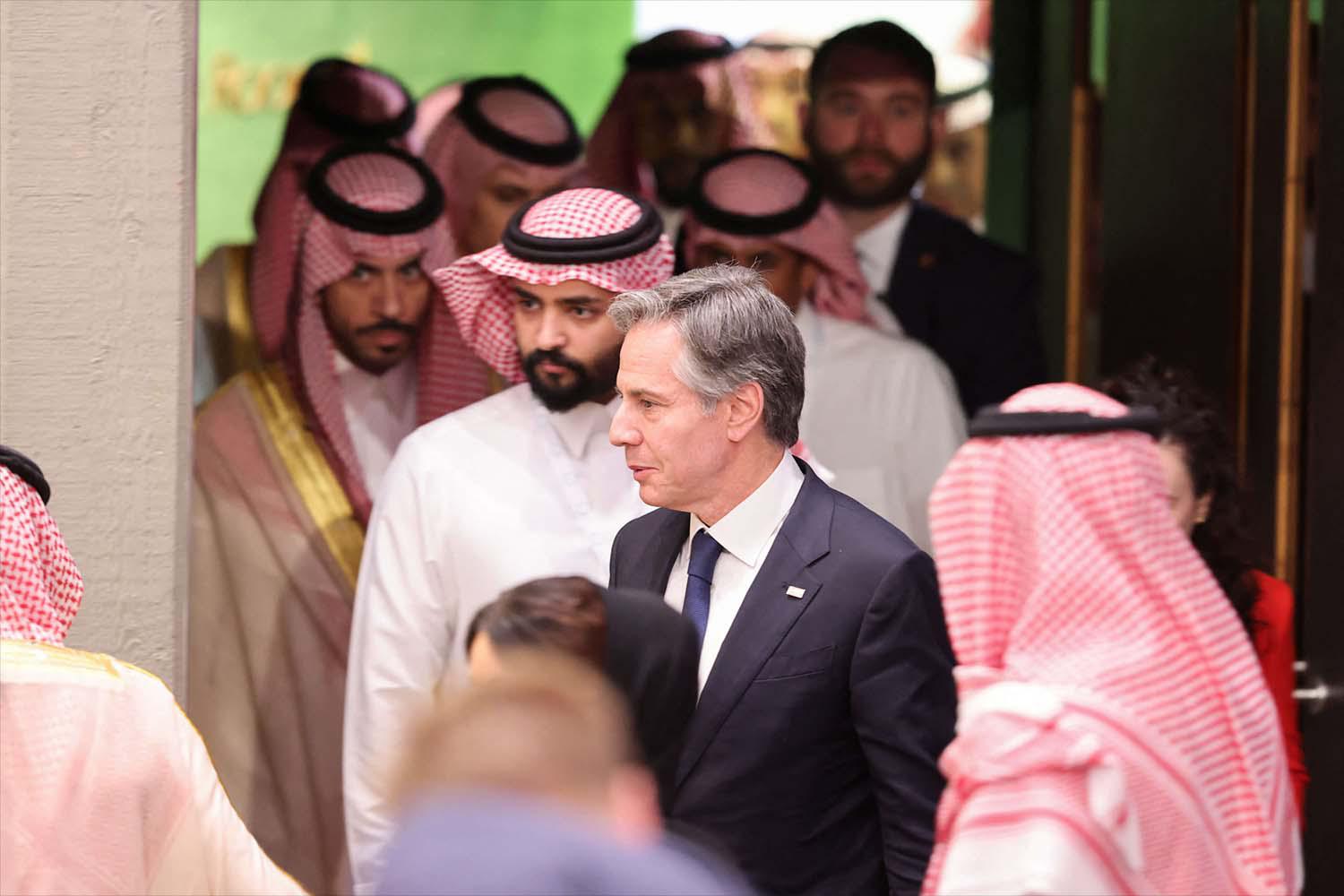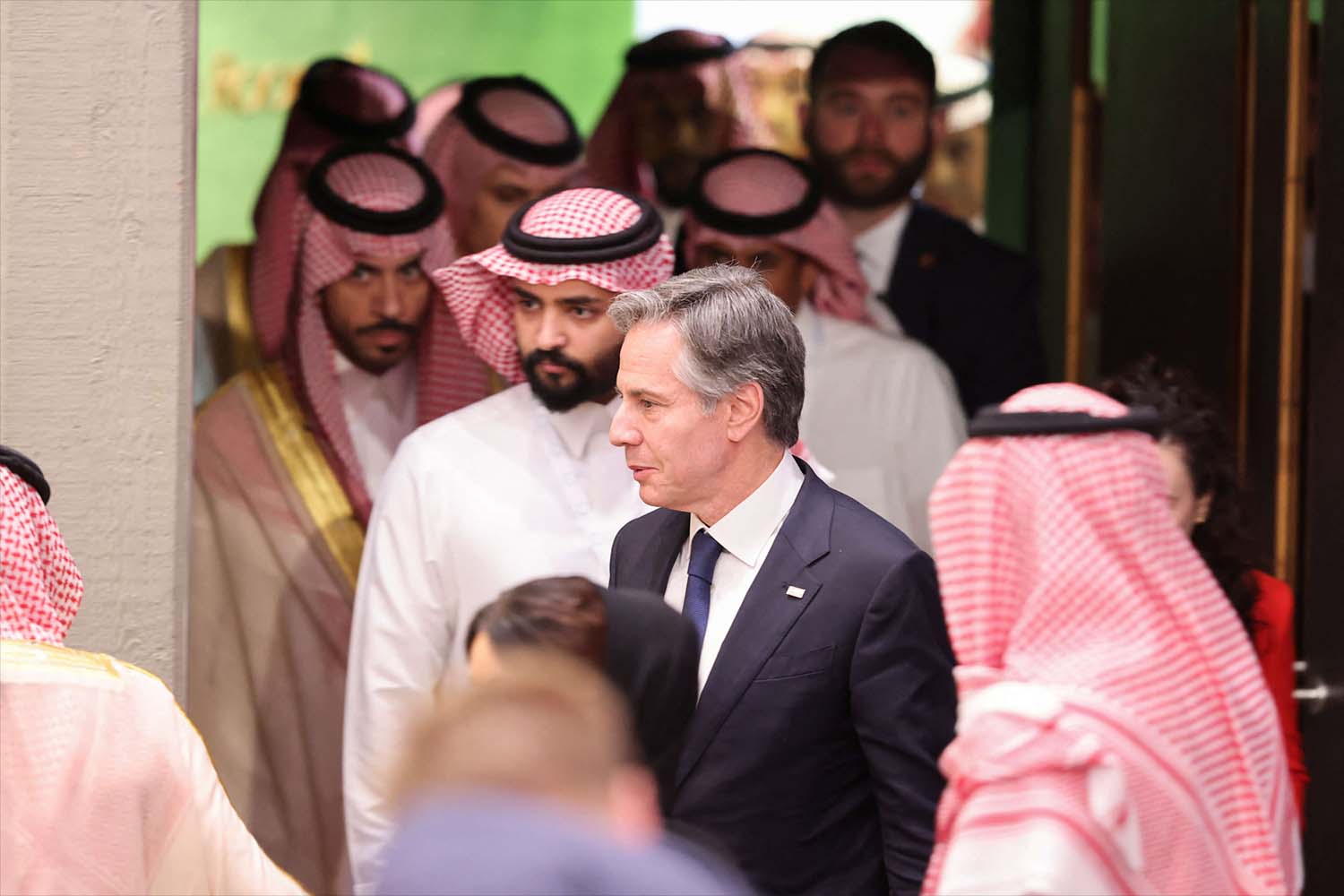Blinken’s visit against the backdrop of Saudi-American ties
On June sixth, US Secretary of State Antony Blinken plans to travel to the Kingdom of Saudi Arabia, a visit that has caught the attention of observers given the recent tensions in the relations between the two allied countries.
According to media reports, a senior US diplomat stated, there is a lot of work to accomplish and the focus is on an action plan to push things forward. Presumably, this implies that the US has a plan in place to maintain the momentum of relations with the kingdom, despite the existing differences in goals and strategic interests between the two allied countries.
The evidence indicates that communication channels between Riyadh and Washington have remained open throughout the past periods, even during times of silent or overt disputes. Cooperation between the two countries has been ongoing in various fields, particularly in the areas of military, security, and politics. The most recent instances of this cooperation involve the two countries mediating between the conflicting parties in Sudan during recent talks held in Jeddah.
Perhaps the meeting hosted by the Kingdom for the member states of the international alliance against Daesh is a new revival of the alliance and sends a strong message that terrorism is still among their top priorities amid the preoccupations of the whole world with other crises, including the war between Russia and Ukraine.
For its part, the US, adheres to the formula of the existing strategic cooperation with the Kingdom of Saudi Arabia, as the two sides share several files and issues, most notably the fight against international terrorism. This mission continues to pose a challenge to about 80 countries, which formed an international alliance to combat terrorism in 2014, as terror organizations have shifted from Iraq and Syria to Africa, where gray areas suffering from the absence of a national state are widespread, in addition to other conditions that contribute to the spread of terrorism and its regional expansion.
Undoubtedly, it is important that regional and international powers, such as the Kingdom of Saudi Arabia and the US, do not lose their focus on strategic priorities such as combating terrorism and confronting it, and that differences in their perspectives on other issues do not affect these priorities.
To the credit of Saudi diplomacy, keen on building balances and maintaining interest and priorities in this vital stage of international relations, the continuation of the Saudi-American dialogue and the reception of two American officials by the Kingdom in less than a month (the Kingdom received Jake Sullivan, the US National Security Advisor, a few weeks ago) indicates Riyadh’s commitment to fulfilling its regional and international duties and responsibilities arising from its strategic position and weight, economically, politically, and spiritually.
It also demonstrates its determination to establish new foundations for managing its relations with major international powers through a foreign policy based on diversity, pluralism, agility, and maintaining equidistance from everyone, ensuring the Kingdom’s preservation of its interests and staying away from unilateral alliances and axes.
“Resetting” relations with the Kingdom of Saudi Arabia, as described by President Joe Biden at the end of last year, is evidently the framework within which Washington is operating. It is important to note that this direction is not necessarily viewed as negative, contrary to popular belief. The US fully acknowledges the significance of the Kingdom in its Middle East and Arabian Gulf strategy, and is well aware of the repercussions that would arise from severing its strategic partnership and longstanding alliance with Saudi Arabia, particularly in the face of intense strategic competition with China, Russia, and other players vying for dominance and influence in the post-Ukraine system.
Additionally, the intended recipients in Washington’s decision-making circles have successfully received the indirect messages conveyed by Riyadh, signifying that the rules of the game have indeed changed.
With the evolution of Saudi foreign policy, it is imperative for American diplomacy to adapt accordingly, ensuring the protection of US interests while avoiding any confrontation with one of its significant historical allies in the Middle East.
Seizing the initiative and acting in accordance with its interests, Saudi diplomacy has objectively succeeded in this stage. Gradually freeing itself from old frameworks and governing rules that shaped its traditional relations with the American ally, it has earned appreciation and respect, entering a new qualitative stage with new foundations and frameworks.
The statements of the White House National Security Council spokesperson, John Kirby, clearly demonstrate this progress, as he said, “We’re focused on the future. It’s an important strategic partnership.” He further added, “That doesn’t mean we always agree with the Saudis on everything, or that they agree with us on everything. We’ve certainly had differences of opinion,” Kirby added.
This acknowledgment highlights the accommodation of differences and tolerance of divergent viewpoints in the relations between these traditional allies, a noteworthy development in managing the Saudi-American relationship.
Realizing the emergence of a new world order and the significance of vital spheres of influence, such as the Gulf region, the US refutes previous speculations about the diminishing importance of fossil fuels and others, as rapid events unfold.
Observing the expansion of its strategic competitors in spaces where American influence recedes, the US is determined to restore its relations with its strategic ally, Saudi Arabia, and accepts continuing within the framework of diversity. These pieces of evidence reflect the success and effectiveness of Saudi diplomacy, which steadily consolidates its regional and international influence, role, and status.
Salem AlKetbi is a UAE political analyst and former Federal National Council candidate







